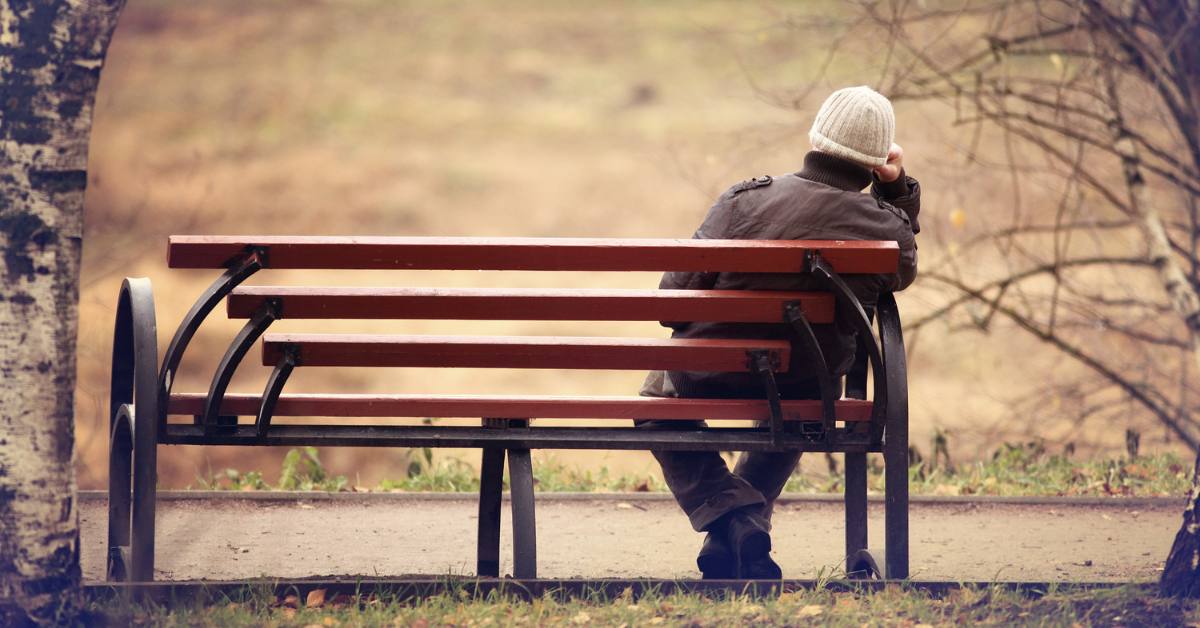Ahhhh, the holidays. For some, it’s a race to string lights, book flights and plan elaborate meals, but for others, it’s a time of year best avoided. As a counsellor with TELUS Health MyCare™, I often hear from men struggling at this time of year. Complex emotions like loneliness, disappointment and guilt can intensify around the holiday season, especially when expectations focus on what you should be doing and feeling.
Recognize loneliness for what it is
Just because you’re alone doesn’t mean you’re lonely. Being alone is a physical state where it is perfectly normal to feel happiness and contentment. On the other hand, loneliness is an emotional state marked by feelings of isolation and disconnection–even when surrounded by other people. In fact, loneliness isn’t always about other people; it can be how we feel about ourselves.
Causes of the Holiday Blues
Feeling less than jolly over the holiday season is a common phenomenon known as the Holiday Blues. It’s caused by a variety of factors, including:
Cultural expectations: Despite various faiths and traditions, there is a common theme of happiness and togetherness. When reality doesn’t align with those themes, feelings of disappointment, loneliness and guilt can arise.
Family dynamics and conflict: Family gatherings can be complicated by differing personalities, opinions and perspectives across generations. Living far apart can worsen these challenges, creating a feeling of loneliness even with family. It’s further intensified if you don’t feel understood or valued.
Financial barriers: Ever-expanding holiday budgets can be impacted by everything from job security to inflation, making it difficult to attend social events. This can lead to feelings of disconnectedness and isolation, particularly when it involves gift-giving and/or parties that might otherwise lift spirits and ward off loneliness.
Tips for coping with holiday loneliness
Acknowledge the problem
Calling out the loneliness in your life gives you a choice: deal with it, or don’t. It’s easy to push down uncomfortable feelings, but doing so often makes them bigger in the long run. Calm a strong emotion by acknowledging it.
Set boundaries
Dealing with difficult family members often means that personal needs take a back seat, which can cause stress and loneliness despite being surrounded by people. It’s important to put your needs first. This might be choosing what you want or don’t want to engage in or asserting yourself with certain people about what works best for you.
Create new traditions
Form your own holiday traditions by doing things you love. Being with family is not a requirement. You can choose to hang out with the people that make you feel good. If you want to play Dungeons and Dragons instead of going to a family event, go for it. Do what’s good for your mental health instead of what you feel like you have to do.
Get outside

People have a tendency to cocoon in the winter—and there’s a time and place for that–but it can also lead to feelings of isolation. Outdoor activities can lift your spirits and send loneliness packing.
If it’s cold and snowy, ice skating, shinny, and tobogganing are fun ways to enjoy the outdoors. Plus, the brightness of the snow tends to have an uplifting effect. Even going out for a walk combines invigorating fresh air with a healthy dose of natural light.
Sign up for a class
You can do this without knowing a single person. Try something new, like roller skating or an improv class. There are also websites like Meetup, where you will find people doing the things you already do—hiking, bowling, watching sports, card collecting, anime, the list goes on—chances are there’s a club, team or special event in your area that welcomes new members or participants.
Pursuing your interests with other random people who share the same ones is a great way to make new friends and gain a new appreciation for the activities you enjoy.
Moderate alcohol use
Relying on booze to cope with loneliness can lead to further feelings of depression and isolation. Plus, it can inhibit your motivation to get out and do things.
Volunteer

Giving back to the community fosters a sense of belonging and connection, whether giving your time or financially through a church or a nonprofit organization. It also feels good and connects you to something bigger than yourself.
Limit social media and news consumption
Over-exposure to the wonderful things people are doing on social media can cause feelings of inadequacy and loneliness.
Watching the news can have the same effect and further contribute to a sense of helplessness, alienation, and guilt. Instead, use your phone to do things that bring you joy, like learning a new language or tracking Santa’s travels around the globe.
What to do when the Holiday Blues don’t melt away
The holidays can also trigger more serious mental health issues, such as anxiety and depression, which are often intertwined with loneliness. While loneliness is an emotion that fades away, depression and anxiety are persistent conditions that may require professional intervention.
If you feel you may have depression or anxiety, check out the signs and symptoms explored here. Share your concerns with your family doctor, counsellor, or psychologist. They can help you understand why you’re feeling the way you are and provide personalized advice and treatment. Sharing and having someone listen to how you’re feeling can be a big help.
The Canadian Men’s Health Foundation’s MindFit Toolkit is another great resource that can help, providing resources, information and counselling services to improve your mental health.
What are some new holiday traditions you’ve developed as an adult? We’d love to hear in the comments below.
Are You at Risk?
Learn your risk level for the most common men’s health conditions in 10 minutes with a free, confidential, and personalized report.



Let’s Talk!
Did you enjoy this article? Let us know in the comments.
0 Comments